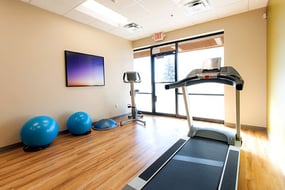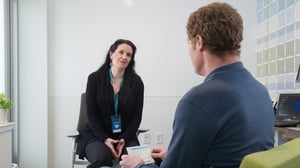In our culture, it seems like everyone is stressed. With our clients and in Vera care centers, it’s one of the key topics we talk about. The majority of our coaching clients deal with stress at some level. There are a variety of causes: a new job, change in environment, a spiraling to do list, or a full season of life.
Because stress is so prevalent, it’s essential that we find a way to notice stress triggers and symptoms, and develop plans to address them.
Distress vs. eustress
Stress can become either toxic or motivational. For example, a deadline can be perceived as a negative stressor, or it could be seen as a positive; something that helps us get an accomplishment achieved. The difference is in how we choose to handle the stress and the story we are creating around the stress.
There are two types of stress: distress and eustress. Distress is negative stress. It occurs when the challenge is greater than the available level of confidence, capacity and/or energy. Eustress is the opposite. It’s a wonderful stress that motivates us to action. This occurs when the stretch requires growth, but does not overwhelm.
Our goal in managing stress is to convert areas of distress into eustress.
Notice your triggers and symptoms
People are constantly saying, “I’m so stressed, I’m so overwhelmed.” It’s pervasive. Strangely, we aren’t taught to recognize our own unique triggers and symptoms of stress. As a result, we can’t address it in a healthy way.
I work with my coaching patients on non-judgmental noticing: the process of identifying what causes stress without making a judgement. For one person it might be the in-laws coming to visit. For another it might be that they have a work project that is huge and they don’t know how to get it done. Once you’ve practiced noticing for a while, you’ll be able to identify what to watch out for.
A key to noticing what triggers stress is learning to identify your unique symptoms of stress. Many symptoms are physical: tight shoulders, holding your breath, shallow breathing. It could be a tension headache, some people talk about their chest feeling constricted. Once you begin building your unique self-awareness library of stress triggers and their associated symptoms, you can begin to build a stress resiliency and management strategy that’s tailored just for you.
Resiliency and stress management
Self-awareness is the first step towards being stress empowered. The next step involves creative experimentation. I have my coaching patients explore three questions:
- What might I do before stress ever hits, so that its effects are minimized?
- What might I do in the midst of being stressed out to manage the stressor?
- How can I recover my resiliency later?
Once they’ve explored these questions, they can start trying out their ideas. They’ll quickly discover the most viable tools for their unique person. These tools and strategies will be the keys to turning something that’s been toxic into an empowered place.
Give stress management a chance
There’s a great acronym to help you practice stress management - it’s related to the word KNOW.
O - Owning it. What part of this is mine? If I have a story going on, and I’m interpreting a bunch of stuff and assuming things, then I need to own that I’m making assumptions. Or if I’ve made a mistake, I need to clean it up. Rather than fighting it, or avoiding it - you lean in. You also recognize that you don’t own it all. And you leave behind what’s the responsibility of other people for them to own.
W - What do I need right now? In the stress moment, what is your first step to managing it? Learn to first recognize what do I need, not what should I do, or what must I do. Do I need to step out of the room and take a deep breath? Do I need a nap? Do I need to take a vacation? First taking care of what your mind, body, and spirit is asking for will prepare you for the the next step. Which might be: What do I need to be doing in my lifestyle to deal with this?
This is where Vera coaching is a wonderful asset for people. Our coaching clients say they value the way their personal confidence, capacity and energy grows through the coaching process. It’s about having a sacred space where it’s safe for you to authentically explore, think things through and try things out. If you’re not ready for coaching, the KNOW acronym gives you something you can start with on your own.
Sign up
Join our email list to receive the latest open positions, Vera Careers news, and more.





